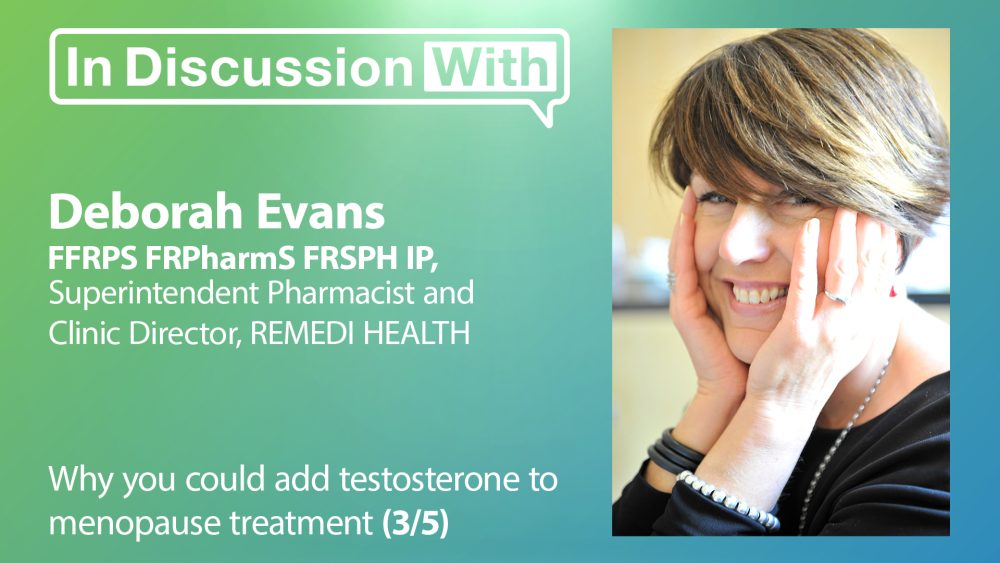Advertisment
Why you could add testosterone to menopause treatment

Testosterone is an important hormone for women and may need replacement alongside oestrogen and progesterone, says Deborah Evans, pharmacist prescriber and Clinic Director at Remedi Health. Replacing testosterone in menopausal women helps with brain fog, cognitive function, motivation, sharpness, confidence and memory, amongst other things.
Once replacement of oestrogen and progesterone deficiencies has been optimised the next thing to consider if whether testosterone replacement is also required, Deborah Evans explains. “We would do that once [oestrogen and progesterone] levels have been optimized and we’re comfortable that she’s got the most out of her symptom control from that replacement”, she says. “We check in with women two weeks after initiation; we check in with women if we’re concerned at all and they know that they can walk in, phone up or email us for any advice during that process”, she adds.
The rationale for testosterone replacement in menopausal women is that testosterone levels fall in menopausal women alongside oestrogen and progesterone. Mrs Evans says: “Testosterone is also in decline so by the time we hit our mid-40s it’s probably half the level we had in our mid-20s – and, as I mentioned earlier, testosterone is a really important neurological hormone. So, we find that the benefits of replacing testosterone really help with brain fog, cognitive function, motivation, sharpness, confidence and memory. It can also help with aches and pains, sleep and, of course, libido which is the only indication really within the NICE guidelines”. Although the NICE guideline stipulates that testosterone may be offered for sexual dysfunction, Mrs Evans says that for many women this is not the top symptom. “For a lot of women coming into the clinic what is worrying them more than anything is their memory loss, the fact that they’re not sharp, that they’ve lost their Mojo, their motivation. They really can’t be bothered; they’ve just lost their ‘get up and go’ and that’s where we see testosterone having its bigger benefit. Now, of course, when they feel more like themselves and …… just more like they were, then, of course, their libido becomes more important to them”, she explains.
One not inconsiderable hurdle is the lack of availability of a licensed testosterone product for use in women in the UK, although this could change in the future says Mrs Evans. In the meantime, the options are either to use the UK product that is licensed for use in men (off-label) or to use a product that is licensed for women in Australia. The UK-licensed male product has to be used in about one tenth of the male dose. In practice, this means getting eight or 10 doses out of a 2.5ml sachet of gel, with all the associated accuracy and product stability problems that this entails. The Australian-licensed product has been developed for use in women and this represents a safer and more effective testosterone replacement treatment for menopausal women, she says.
About Deborah Evans
Deborah Evans is a pharmacist independent prescriber who specialises in women’s reproductive and sexual health, including the menopause. She owns and runs Remedi Health, a clinic in Winchester, Hampshire. She combines the roles of Clinic Director, Superintendent Pharmacist and hands-on practitioner.
Read and watch the full series on our website or on YouTube.
This episode of ‘In Discussion With’ is also on Spotify. Listen to the full podcast now.





